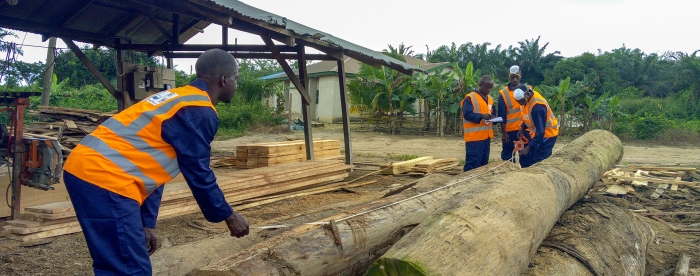View the short online version
In this annual report we present the achievements in 2017 towards a future in which forests and trees are used in a way that benefits local people and the global community.

Ghana - 04 September, 2018
For several years, Tropenbos Ghana has lobbied policymakers throughout Ghana to adopt artisanal milling as the preferred method for small and medium-scale milling as an alternative to chainsaw milling, which is banned in the country but still practised. To reinforce these lobbying efforts, Tropenbos Ghana decided to investigate the economic viability of artisanal milling using the Net Present Value (NPV) method.
This method measures the difference between the present value of cash inflows or investments in a project or business, and the present value of cash outflows or profits. The research focused on three artisanal mills located in the Juaso and Goaso forest districts. All three mills proved to have a positive NPV, which indicates that they are profitable businesses. The mills also boosted the economies of local communities.
As part of the study, stakeholders across the two forest districts were interviewed to assess the social and environmental impacts of artisanal milling:
To address the problem of deforestation and the destruction of farmland, TBI has assisted artisanal millers to establish nurseries and grow trees for afforestation activities. Artisanal millers have also been trained in agro-forestry, planting trees together with food crops to reduce the impact of their activities on farming.
The outcomes of the study will be published as the book Prospects of the Artisanal Milling Concept in Ghana in 2018. It will reinforce ongoing lobbying for adoption of the artisanal milling concept.
Published in the annual report 2017